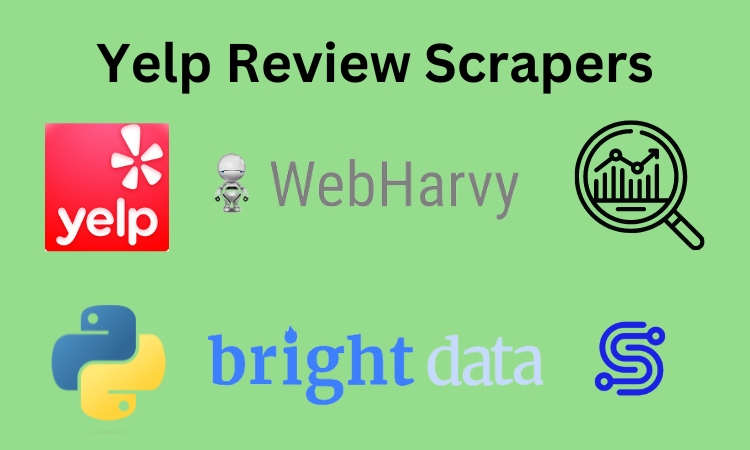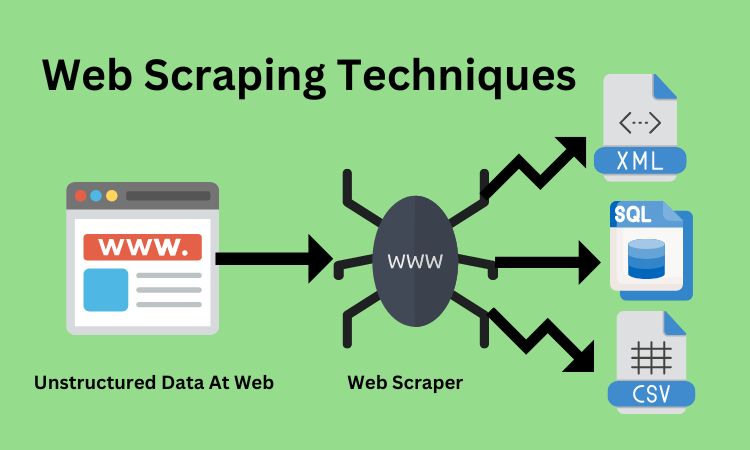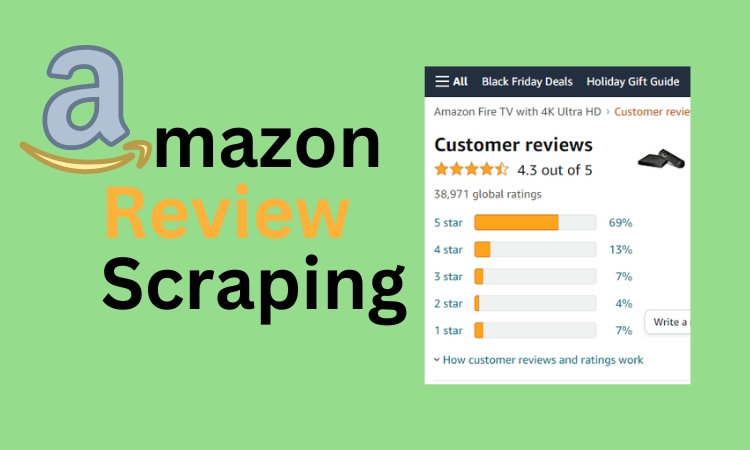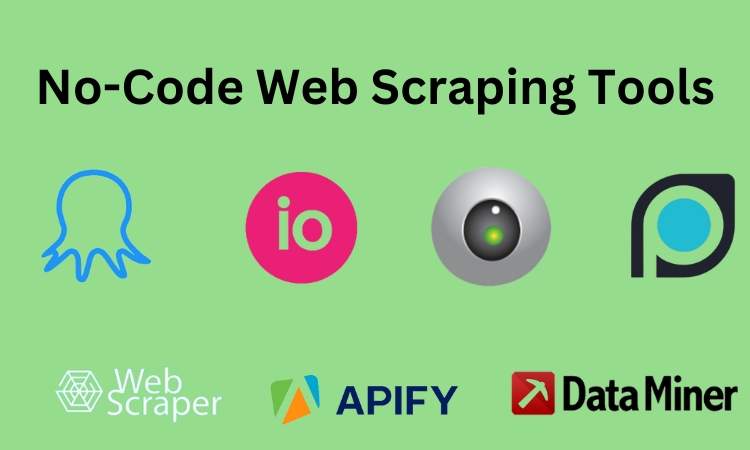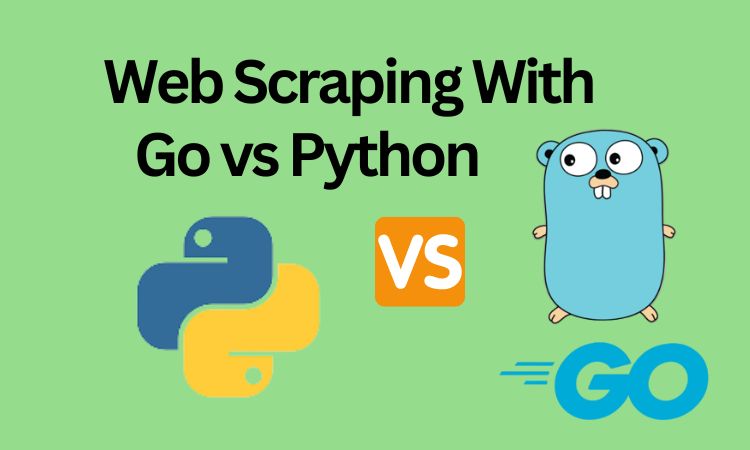IP Rotation for Web Scraping: Overcome IP Ban
In this blog post, we will explore the concept of IP rotation for web scraping, its benefits, and how it can revolutionize your data extraction efforts.
Web scraping has become an integral part of data gathering for businesses, researchers, and developers. However, as websites implement stricter measures to protect their data, web scrapers often face obstacles such as IP blocking and detection. This is where IP rotation comes into play, offering a powerful solution to enhance efficiency and overcome these challenges.
In this blog post, we will explore the concept of IP rotation for web scraping, its benefits, and how it can revolutionize your data extraction efforts.
Understanding IP Rotation for Web Scraping
Web scraping involves extracting data from websites and relies on sending HTTP requests to those websites. However, websites often employ IP-blocking mechanisms to deter or limit scraping activities. IP rotation refers to regularly changing the IP address used in web scraping processes.
It involves cycling through a pool of IP addresses to prevent detection, bypass restrictions, and maintain a high success rate in data extraction. You will get new residential IP addresses and will overcome scraping challenges. So you need to enable IP, will get an actual IP address, and then will get access to the public web if you need to scrape the data.
If you are not using rotating, the websites will catch and block your IP address. So each time you squeeze the data, the IP being used should be unique to avoid getting blocked.
How Does IP Rotation Work?
IP rotation can be implemented in various ways, depending on the specific requirements and resources available. One common approach is a rotating proxy service, automatically switching the IP address for each request. The rotating proxy service manages a pool of IP addresses, and the scraper’s requests are routed through these IPs.
Another method involves manually or programmatically working a collection of IP addresses and rotating through them at specified intervals. Turning data center and residential proxies allow you to perform scraping smoothly to enhance your web scraping experience.
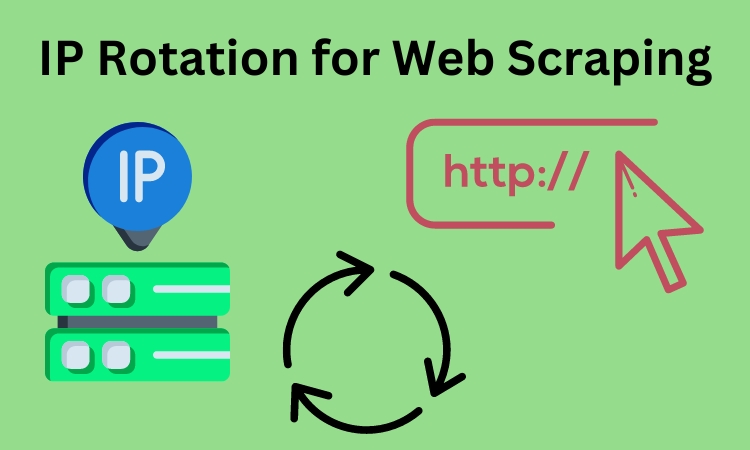
What is the Difference Between IP Rotation and Proxy Rotation?
IP and proxy rotation are both techniques used to enhance anonymity and privacy online, but they operate at different levels and serve other purposes.
IP Rotation: IP rotation refers to regularly changing the IP address associated with a particular device or network connection. This can be done by obtaining a new IP address from an Internet Service Provider (ISP) or using a service that provides a pool of rotating IP addresses. The primary purpose of IP rotation for web scraping is to prevent tracking and profiling of internet activities by constantly changing the digital fingerprint associated with a specific IP address.
It can bypass certain restrictions or limitations websites impose, such as anti-scraping measures or rate limits. IP rotation is used for web data scraping. You can rotate your IP using Python to perform web scraping operations on different web pages, and it will provide you with real IP addresses. IP rotation is very helpful in web scraping techniques.
Proxy Rotation: Proxy rotation involves continuously switching proxy servers to route internet traffic through different intermediary servers. A proxy network intermediates between a user’s device and the target website or server. The user’s IP address and identity remain hidden by rotating proxy servers, and the website or server sees requests from different IP addresses associated with the rotating proxies.
The primary purpose of turning proxy for web scraping is to achieve anonymity, bypass geolocation restrictions, rotate residential IPs, and distribute traffic across multiple IP addresses to avoid detection or blocking. The proxy manager automatically turns the proxy IP and will provide you with a new proxy. An intelligent proxy is considered the best-rotating proxy for web crawling. If you use a new proxy with every request, websites will never block you.
In summary, IP rotation for web scraping focuses on changing the IP address associated with a specific device or network connection. In contrast, proxy rotation involves switching between proxy servers to route internet traffic. IP rotation is typically done at the network level, while proxy rotation is generally implemented at the application level by configuring software or using specialized proxy services.
Both techniques can be combined to enhance privacy and anonymity and overcome certain restrictions imposed by websites or online services.
Benefits of Using IP Rotation for Web Scraping
a. Overcoming IP Blocking: Websites often employ IP blocking mechanisms to deter or limit scraping activities. By rotating IP addresses, web scrapers can bypass these restrictions. Even if one IP is blocked, the scraper can continue using a different IP, ensuring uninterrupted data extraction.
b. Anonymity and Privacy Protection: IP rotation for web scraping enhances anonymity by making it difficult for websites to track and identify the source of scraping activities. With each request originating from a different IP, the web scraper’s identity remains concealed, protecting privacy and reducing the risk of being flagged or banned.
c. Ensuring Data Integrity: IP rotation for web scraping minimizes the chances of websites detecting and manipulating scraped data based on the scraper’s IP address. By switching IPs, web scrapers can collect data without interference, ensuring the integrity and accuracy of the extracted information.
d. Scalability and Performance Optimization: IP rotation enables web scrapers to scale their operations effectively. By distributing requests across multiple IP addresses, scraping tasks can be performed in parallel, accelerating the data extraction process and optimizing performance. Additionally, IP rotation helps reduce the chances of overwhelming a single IP address with too many requests, which could lead to slower response times or IP blocking.
You can check the 14 Best web scraping tools.
FAQs about IP Rotation for Web Scraping
Is IP rotation legal for web scraping?
The legality of web scraping depends on various factors, including the website’s terms of service and the nature of the data being scraped. Reviewing and complying with the website’s policies and applicable laws before engaging in grinding activities is crucial. While IP rotation itself is not illegal, it’s essential to ensure that you are using IP rotation in compliance with the law.
How can I implement IP rotation in my web scraping process?
IP rotation can be implemented through a rotating proxy service or by managing a pool of IP addresses manually or programmatically. The choice depends on the specific requirements and resources available to you. Rotating proxy services is often more convenient as they automatically handle the IP rotation process while managing a pool of IPs requires additional configuration and maintenance.
Can IP rotation be used with any scraping tool or framework?
Yes, IP rotation can be utilized with most web scraping tools and frameworks. Ensuring compatibility and configuring the device to rotate IPs effectively is essential. Many scraping libraries and frameworks offer built-in functionality or extensions/plugins for IP rotation.
Will IP rotation slow down my scraping speed?
While IP rotation may introduce a slight overhead due to the IP switching process, it can also enhance performance by enabling parallel scraping and distributing requests across multiple IPs. The impact on scraping speed depends on various factors, such as the number of IPs and the efficiency of the implementation. However, when appropriately implemented, the benefits of IP rotation outweigh any minor decrease in speed.
Conclusion
IP rotation has become an essential technique for web scraping, offering a range of benefits, including overcoming IP blocking, ensuring anonymity, protecting privacy, and optimizing performance. By implementing IP rotation effectively, web scrapers can enhance their efficiency, extract valuable data, and navigate the challenges posed by modern websites, ultimately empowering their data-driven endeavors.
Stay mindful of the legal and ethical considerations surrounding web scraping, and leverage IP rotation as a powerful tool to unlock the full potential of your web scraping projects.
